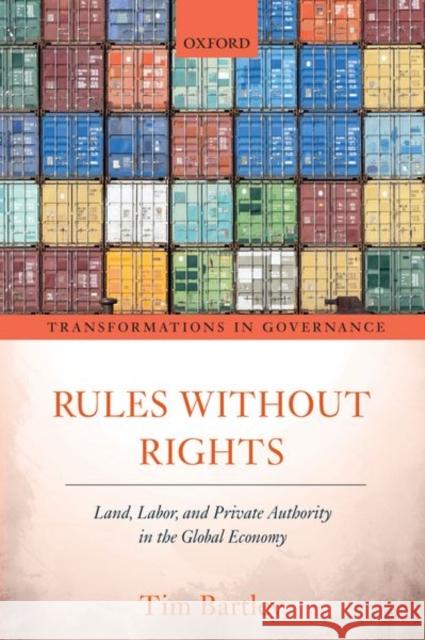Rules Without Rights: Land, Labor, and Private Authority in the Global Economy » książka
topmenu
Rules Without Rights: Land, Labor, and Private Authority in the Global Economy
ISBN-13: 9780198863281 / Angielski / Miękka / 2020 / 368 str.
Rules Without Rights: Land, Labor, and Private Authority in the Global Economy
ISBN-13: 9780198863281 / Angielski / Miękka / 2020 / 368 str.
cena 138,50
(netto: 131,90 VAT: 5%)
Najniższa cena z 30 dni: 125,56
(netto: 131,90 VAT: 5%)
Najniższa cena z 30 dni: 125,56
Termin realizacji zamówienia:
ok. 30 dni roboczych.
ok. 30 dni roboczych.
Darmowa dostawa!
Kategorie:
Kategorie BISAC:
Wydawca:
Oxford University Press, USA
Język:
Angielski
ISBN-13:
9780198863281
Rok wydania:
2020
Ilość stron:
368
Waga:
0.61 kg
Wymiary:
23.11 x 15.49 x 2.29
Oprawa:
Miękka
Wolumenów:
01
Dodatkowe informacje:
Bibliografia











